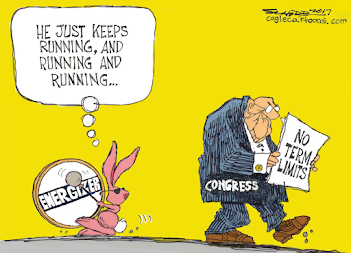My Plan for Universal Healthcare, Without Medicare for All
By Josh Weisman
The November 2018 midterms proved that health care now is a winning issue for Democrats if we consistently stick with talking about the issues on the campaign trail. Thanks to Senator Bernie Sanders, the idea of Medicare for All has become a component of nearly every Democrat running for Congress in 2018 or president in 2020. Although there is no single bill yet that the Democratic caucus has unified around, multiple bills in both chambers of Congress address one key issue: expanding access to health care.
Where We Are Now
Before I get into the future of healthcare in our country, we must discuss where we currently are at. The United States doesn’t have one health insurance plan, but rather different types of coverage for different demographics of people. Approximately half the country is on employer-sponsored health insurance meaning that through his/her employer the employee and his/her family have coverage. For low income Americans who qualify, these individuals are on Medicaid. For people 65 or older, close to 98% of these people are on Medicare. Additionally, CHIP (Children’s Health Insurance Program) provides coverage to uninsured children whose parents can’t afford private coverage and don’t qualify for Medicaid. Next, if eligible, veterans may receive coverage through TRICARE or the V.A. Lastly, Americans can purchase coverage through the Marketplace (aka exchanges). All these different forms of coverage and others add up to 91.2% Americans covered leaving approximately 29 million Americans uninsured according to a US Census report released in September 2018.
What I Would Like to See in Health Care Reform
- Lower the Medicare Age to 55
People ages 55-64 have the highest per-capita health care costs. Moving these individuals to Medicare would likely make the exchanges cheaper for younger enrollees. With over 80 million Americans between 55-64, I don’t think it would be wise to instantly move all these people to Medicare. I suggest lowering the Medicare age by 1- or 2-year reductions. Lowering the Medicare age would expand access to health insurance for 3.3 million people.
- Expand CHIP
There are 3.8 million uninsured children in the US. I think enrolling these kids in CHIP would be smart and beneficial to millions of families.
- Bring Back Cost-Sharing Reduction (CSR) Payments
Under the ACA, there are two types of subsidies which are CSR and premium tax credits. CSR subsidies apply to individuals who earn below 250% of the federal poverty line and are treated as discretionary spending, so Congress must allocate funds to it (appropriate) every year. The tax credits apply to individuals who earn below 400% of the federal poverty line and are treated as mandatory spending, so there is no Congressional action needed. President Trump announced that he would end CSR payments. This led to premium increases between 7% and 38% However, the premium subsidies are tied to income. In a 2017 article from Vox, Sarah Kliff writes, “Someone who earns 200% of the poverty line, for example, is expected to pay 6.4% of her income on premiums to purchase a mid-level plan. The government kicks in the rest. If the Trump administration were to end the cost-sharing reduction subsidies, CBO estimates that premiums for mid-level health plans would rise 20% in 2018... Insurance plans would raise their premiums to offset the lost funding. And those higher premiums would mean the federal government has to spend $194 billion more in subsidies to help pay those higher premiums.” We should make sure the plans on the exchanges are affordable
- Raise the Threshold to Receive CSR Payments
According to Kaiser Family Foundation research, about 17 million of the 27 million uninsured make more than $40,000 per year. Raising the 250% and 400% federal poverty line levels for the subsidies would allow more people to enroll in the marketplace. I suggest maybe a $60,000 level to make coverage more affordable.
- Let Medicare negotiate drug prices or let the federal government step in
Americans pay way too much for drugs, and changing the law that currently prevents Medicare from negotiating drug prices would alleviate pressure on Americans. The start of 2019 meant hundreds of drug companies raised their prices.
- Move open enrollment and stabilize the exchanges
Open enrollment for the federal marketplaces opens November 1 and closes December 15, but this coincides with the holiday shopping season. Moving open enrollment to March and April allows individuals to spend money once they receive their tax refunds. Insurers decide what counties to sell insurance in and reevaluate every year before open enrollment begins. If the government could work with insurers to allow them to sell in all counties within a state for 2-year periods, this could increase insurer participation and provide an opportunity for competition.
The Simple Idea
The simple idea behind Medicare for All is something I 100% support: guaranteeing every citizen access to health care. This is called universal health care. Sanders routinely points out that the United States is the only highly developed nation in the world that doesn’t have universal health care.
What We Learned from the ACA and GOP Tax Bill
It is well known that the Affordable Care Act was far from perfect with some bumps in the road, but over 20 million Americans gained coverage. Insurance companies can no longer exclude people with pre-existing conditions and all plans must cover the ten essential health benefits. Problems occurred with the initial launch of the website and companies canceling plans that didn’t comply with the new ACA regulations. If there is/are problem(s) with the implementation of Medicare for All, these could impact coverage for the entire country. Typically, when a party passes a law, the other party doesn’t come to the table to help address any problems. Once Democrats lost the House in 2010, no bill came to floor of the house to help Americans alleviate some of the problems with the ACA. Likewise, once the GOP passed its tax bill in 2017, Democrats did not want to come to the table to fix what some have called the "grain glitch." If Democrats pass Medicare for All in 2021-2022 and there are problems, Republicans would likely say Democrats own this legislation and not help with a solution leaving millions of Americans suffering.
The Filibuster
To break a filibuster, 60 senators must approve of the legislation. When the Senate passed its version of the ACA in December 2009, Democrats had 60 votes including 2 Independents. However, when Republican Scott Brown won the special election in Massachusetts to fill the seat left open with the death of Senator Ted Kennedy, it put Democrats in a pickle. The House agreed to the Senate version in March 2010 with Democrats using the reconciliation process to get around the filibuster. Democrats passed the Health Care and Education Reconciliation Act of 2010 just days after President Obama signed the ACA into law. This law amended the ACA with a lot of provisions worked out between the House and Senate versions. If the Democrats flip the Senate and win the presidency in 2020, they will not be anywhere close to the 60 votes needed to break the filibuster (likely to be between 50 and 52 seats in best case scenario). If the Democrats control the Senate, they have three options. One is to try to pass legislation with 60 votes, but this is likely to fail with Republicans not crossing the aisle. The second is getting rid of the filibuster. Some Democrats have already said they would never get rid of the filibuster but both parties have used the nuclear option to confirm judges. The third is using budget reconciliation. This is how the GOP tried to repeal and replace the ACA and how they passed their tax bill. Although trying to repeal the ACA was dumb in a million ways, their bills that failed were bad due to the restrictions placed in reconciliation which limited what they could put in the bill.
Tax Increases
The Medicare for All bills or proposals already in existence typically include some sort of tax increase. The most progressive versions of bills eliminate copayments and monthly premiums and replace them with some sort of tax increase (usually payroll or income). Although monthly premiums are sort of like a monthly tax, it will be tough to win a messaging battle, and the reconciliation process will limit what Democrats can pass.
Reality
Presidential candidates often draw up a plan detailing what they want accomplished during their presidency and even during their first 100 days. Often, these goals are more extreme then the center of the party, and either through writing or passing legislation, these ideas are pushed more to the center or knocked down completely. For example, President Obama endorsed a public option in the ACA which was included in the House version, but the Senate removed it due to senators such as Joe Lieberman saying they wouldn’t vote for a final bill that included a public option. Likewise, President Trump promised to repeal and replace the ACA and build the wall, but neither of those have happened. Democrats should keep this in mind, so they don’t fail on their promises. However, the world of politics does allow lawmakers to challenge what some consider unachievable.
Taking On Private Insurance
Medicare for All would likely eliminate employer-based coverage affecting approximately 150 million Americans. However, people who receive this coverage overwhelmingly enjoy the benefits. According to a study done by Kaiser Family Foundation, 83% of people rate their employer-based coverage as excellent or good. Likewise, in a New York Times article from 2014, Margot Sanger-Katz writes about research done by The Urban Institute’s Health Reform Monitoring Survey. According to the survey, 82% of people are satisfied with their choice of doctors and other providers, and 77% are satisfied with the ability to get specialist coverage. The problem with employer-sponsored coverage is the financial side with only 56% satisfied with their premium cost and only 51% satisfied with their deductibles. Between most of the public enjoying their employer-based coverage and the fear seen over the last two years with the GOP trying to take away health insurance from 20 million people, I think it would be foolish to move away from employer-sponsored health care.
Over 100 million dollars was spent in 2009-2010 to stop the ACA from becoming law, so I think insurance companies would spend a lot of money to stop Medicare for All from becoming law. Lastly, since the Supreme Court ruled that the federal government could not force states to expand Medicaid, I’m sure the federal government can force Americans off private insurance.



Comments
Post a Comment